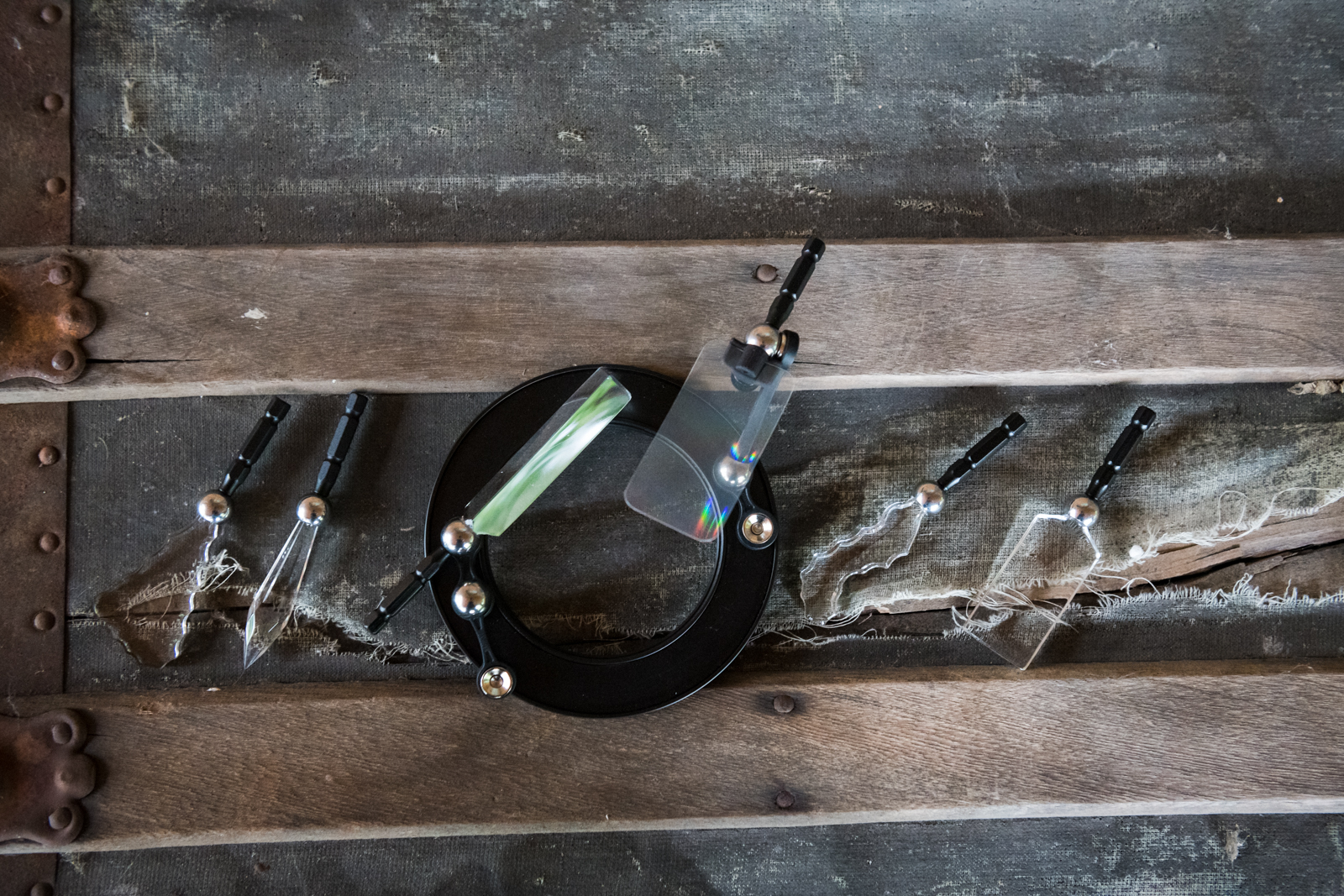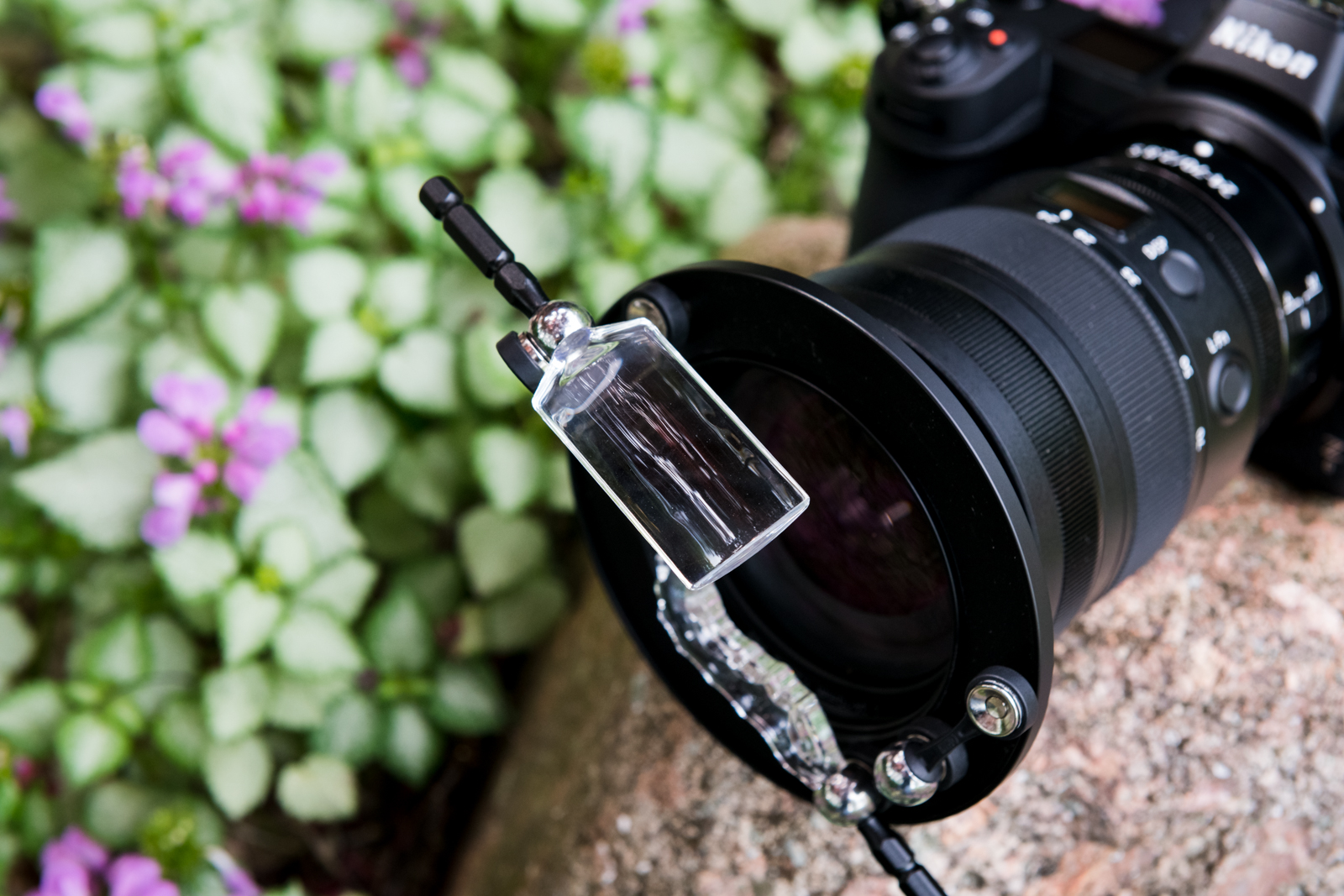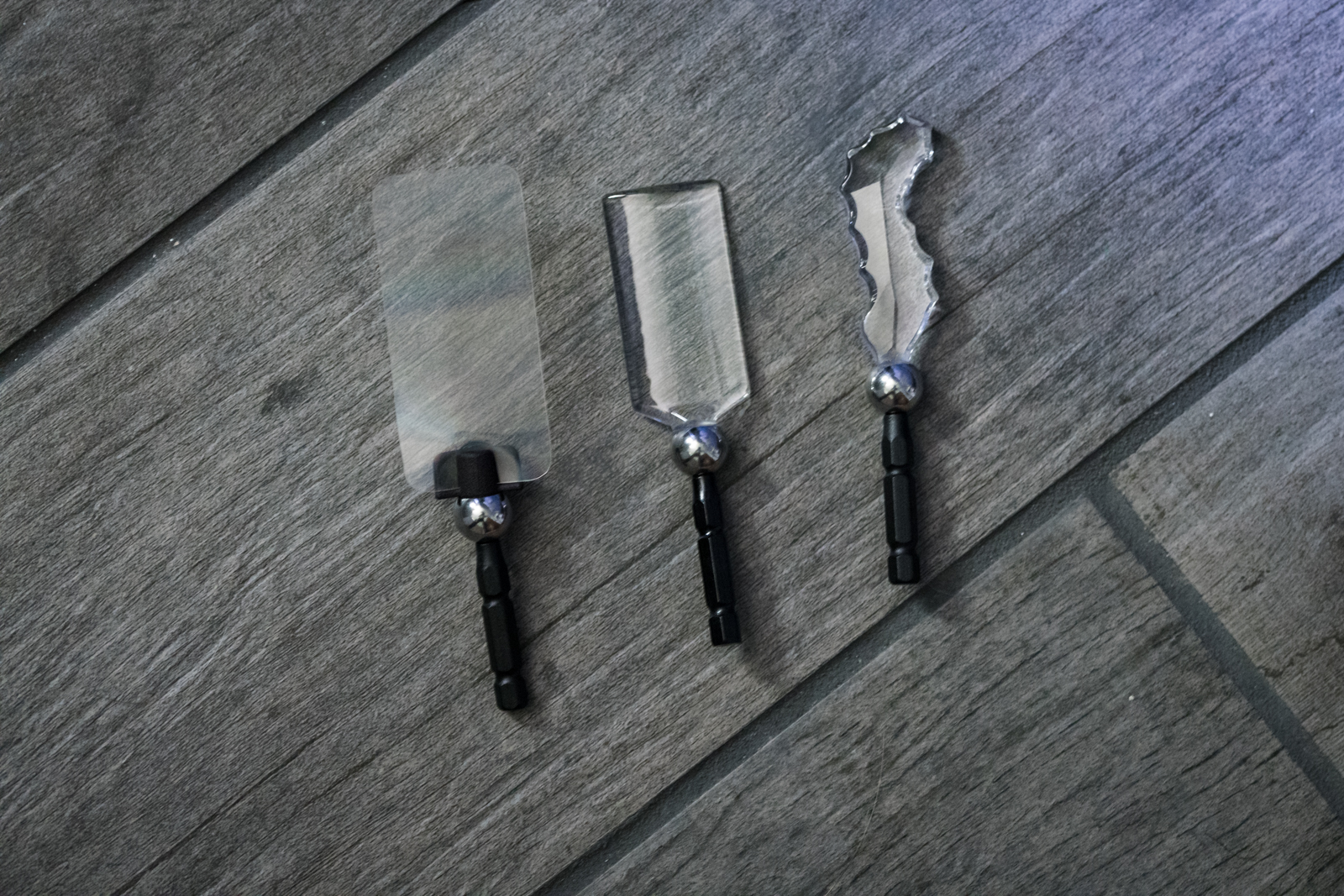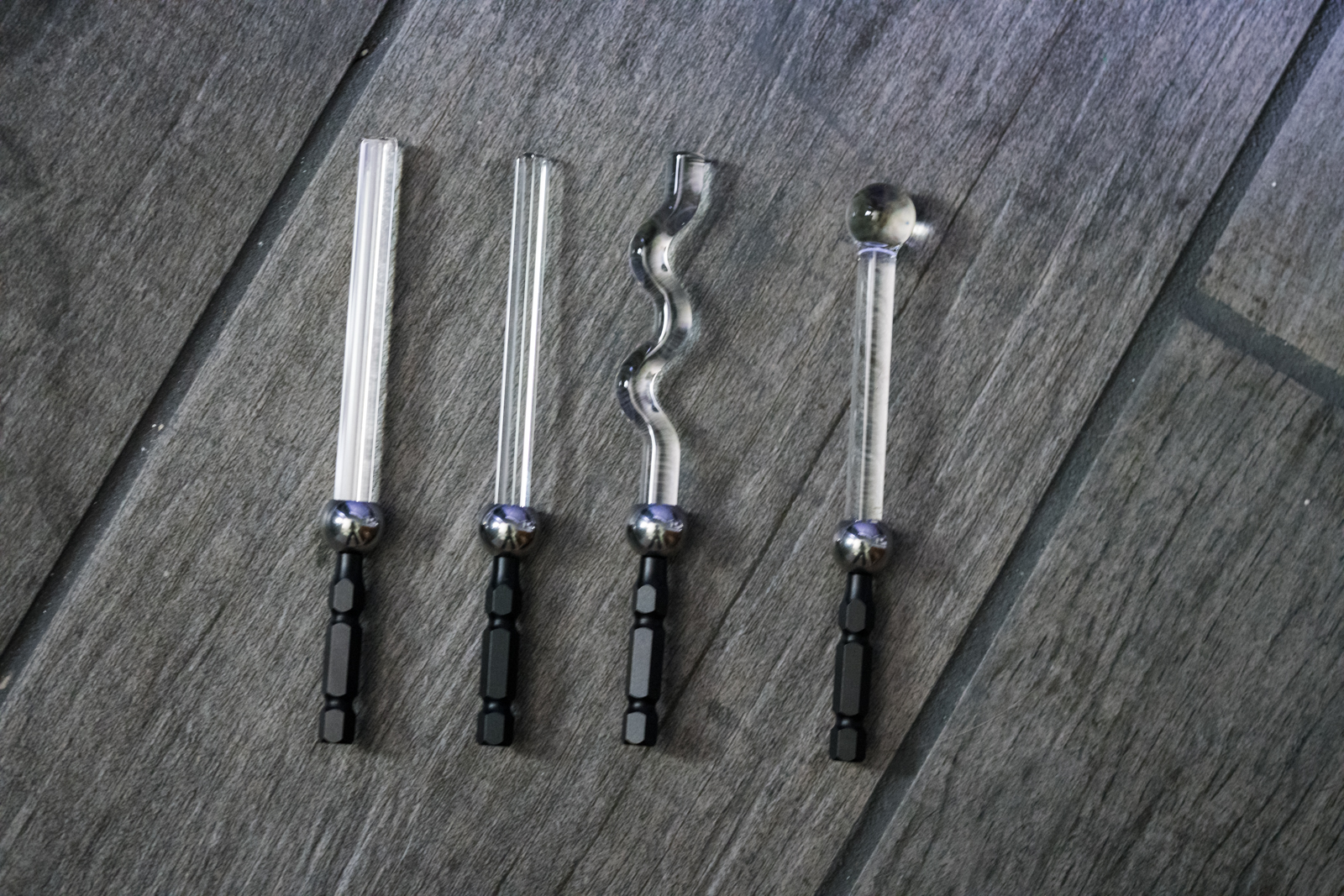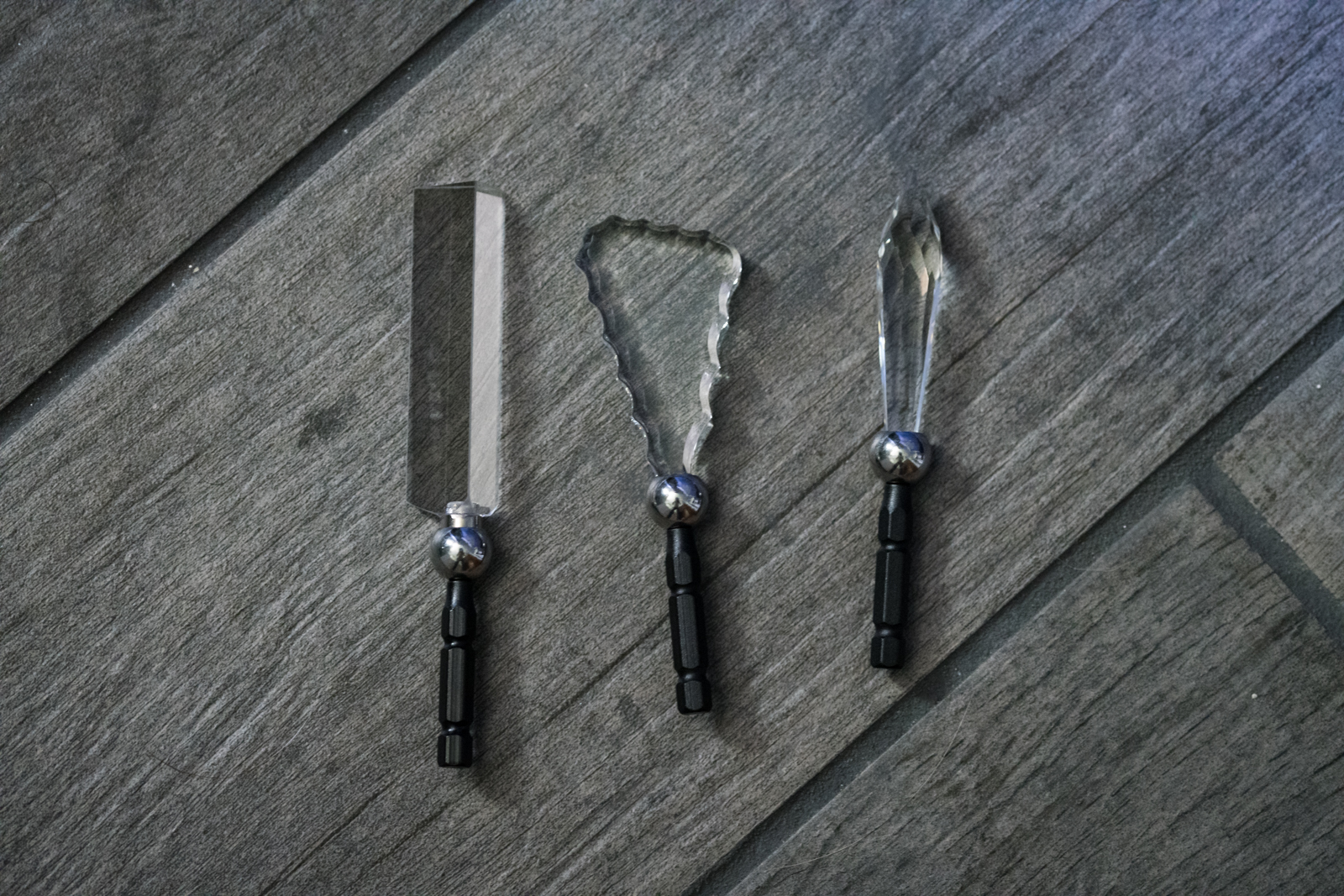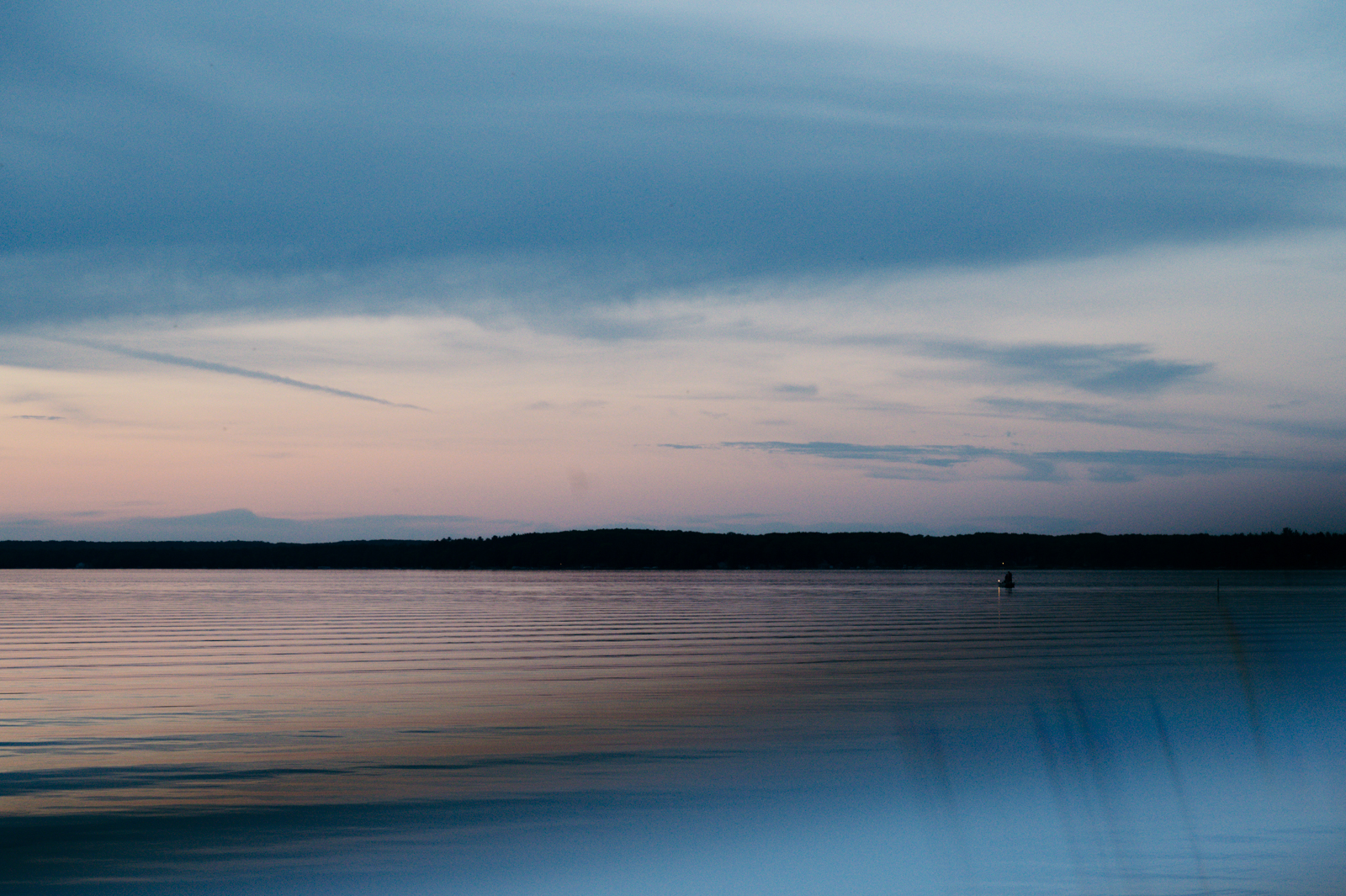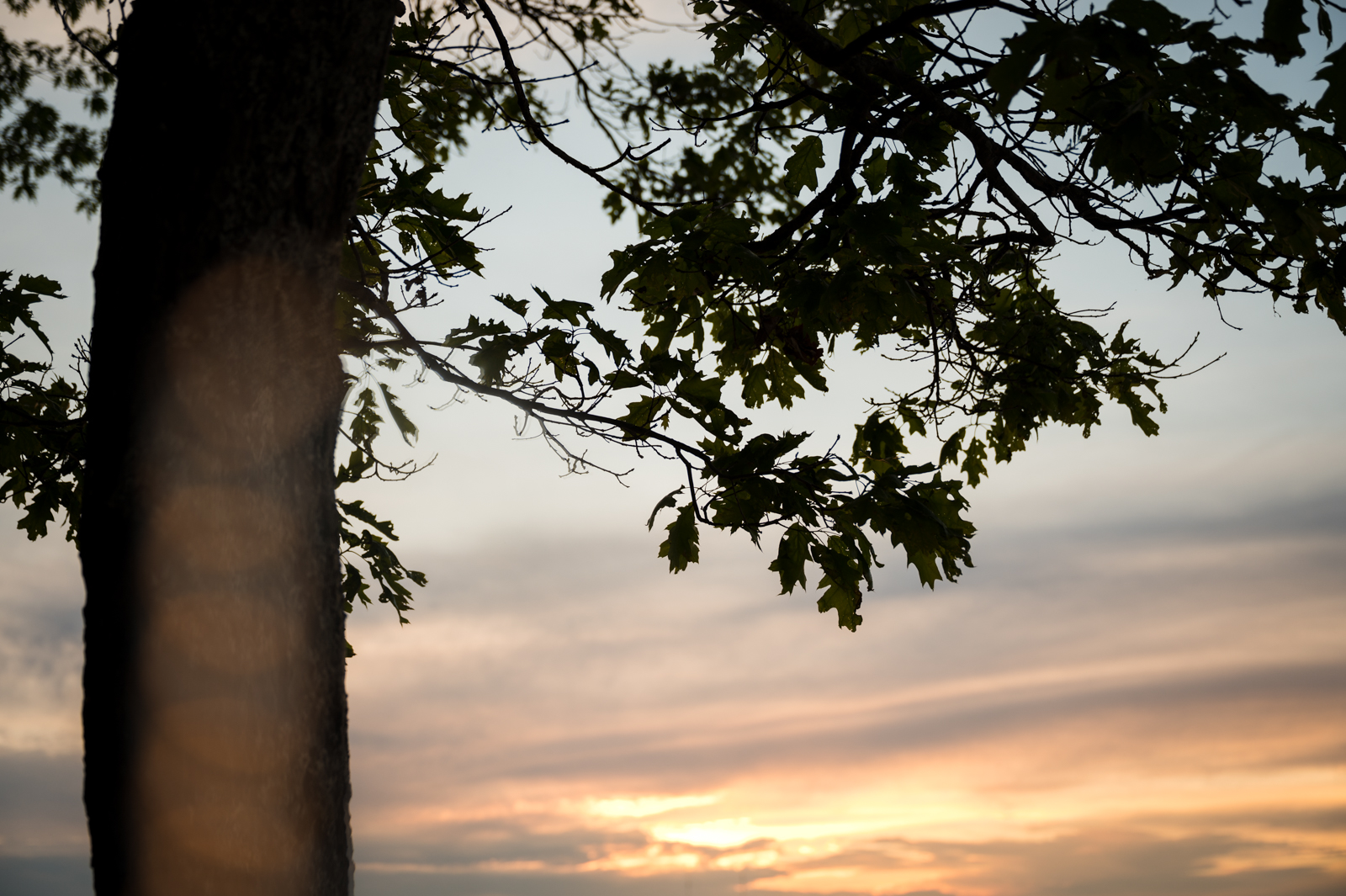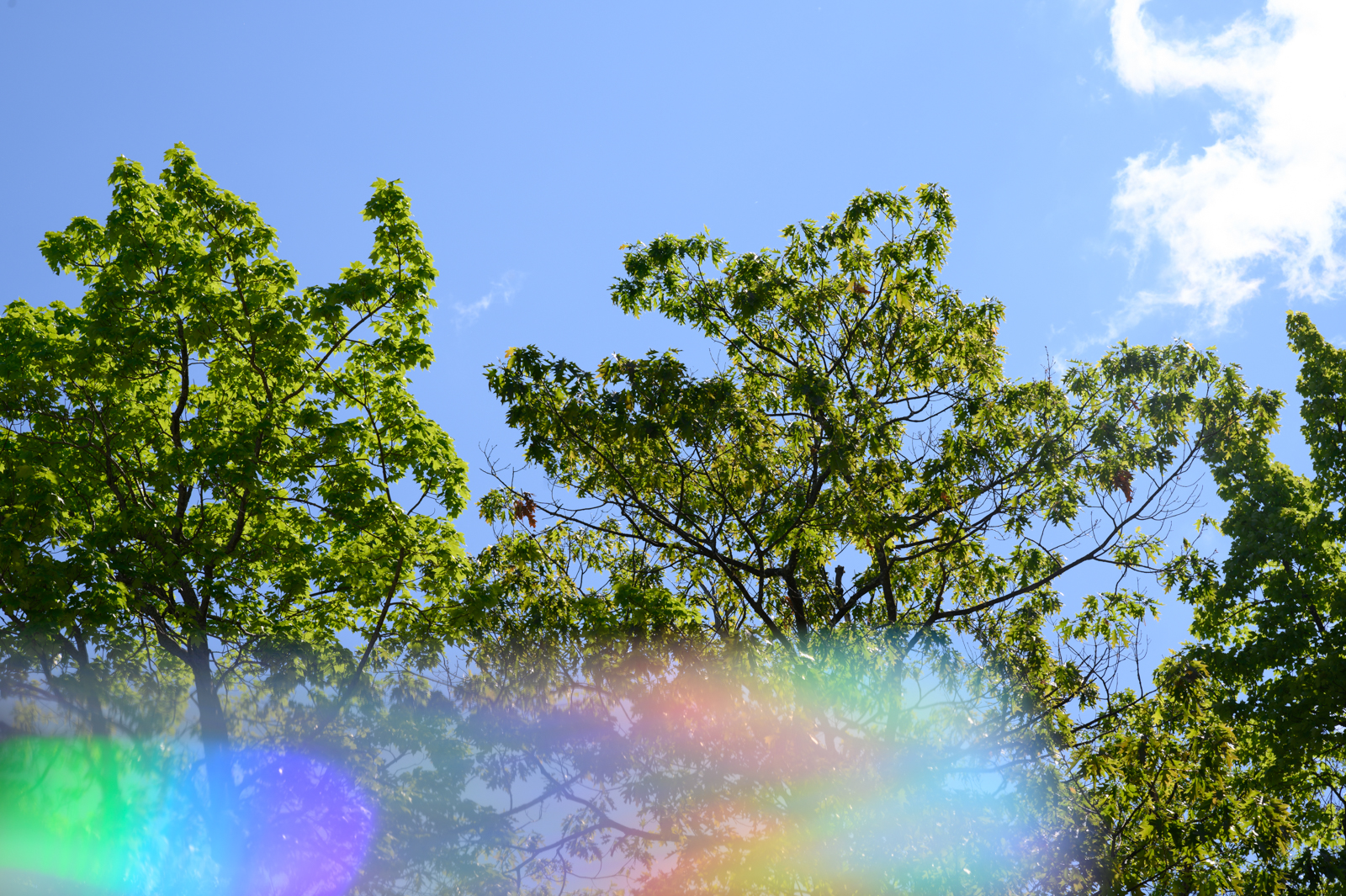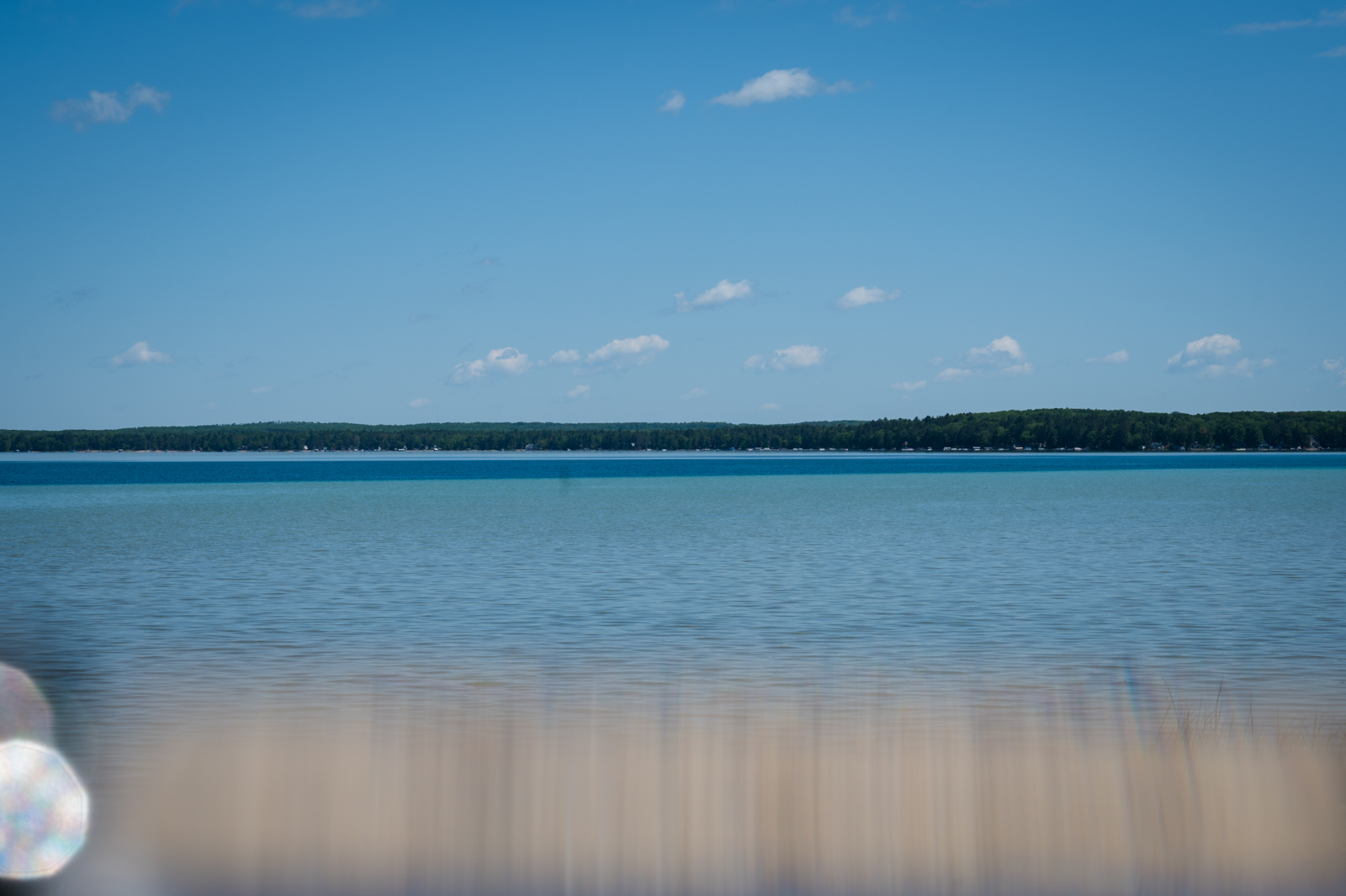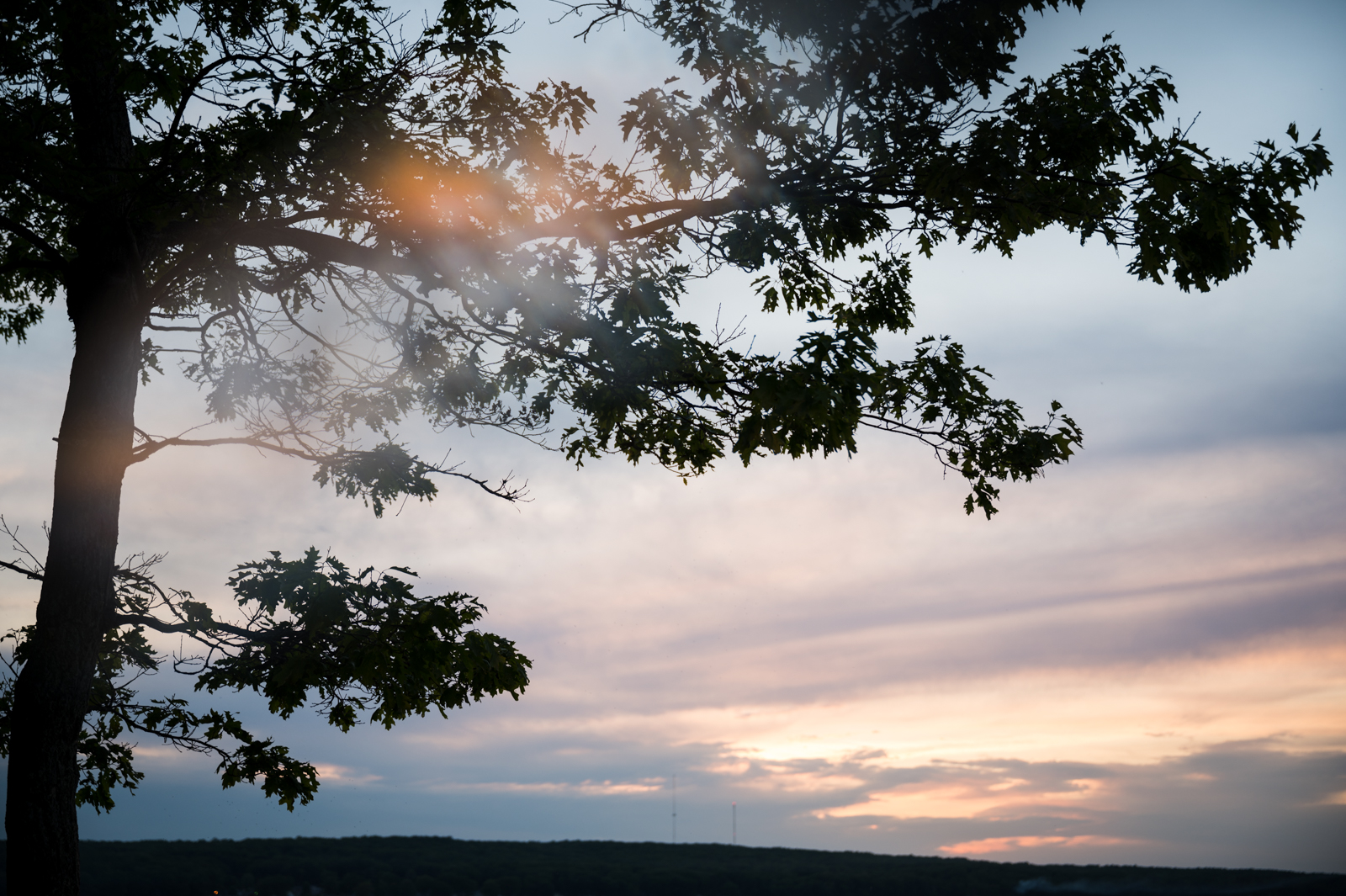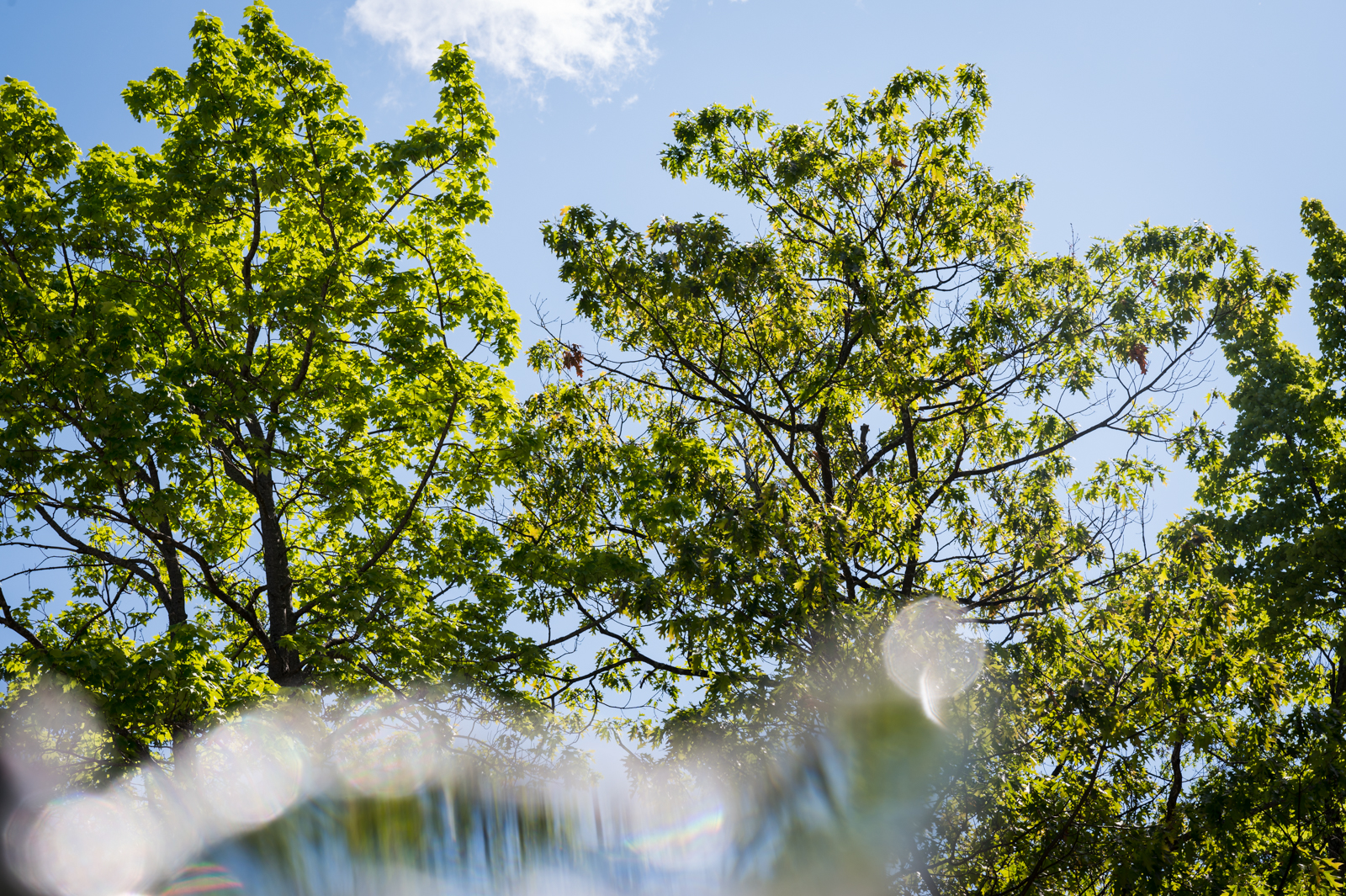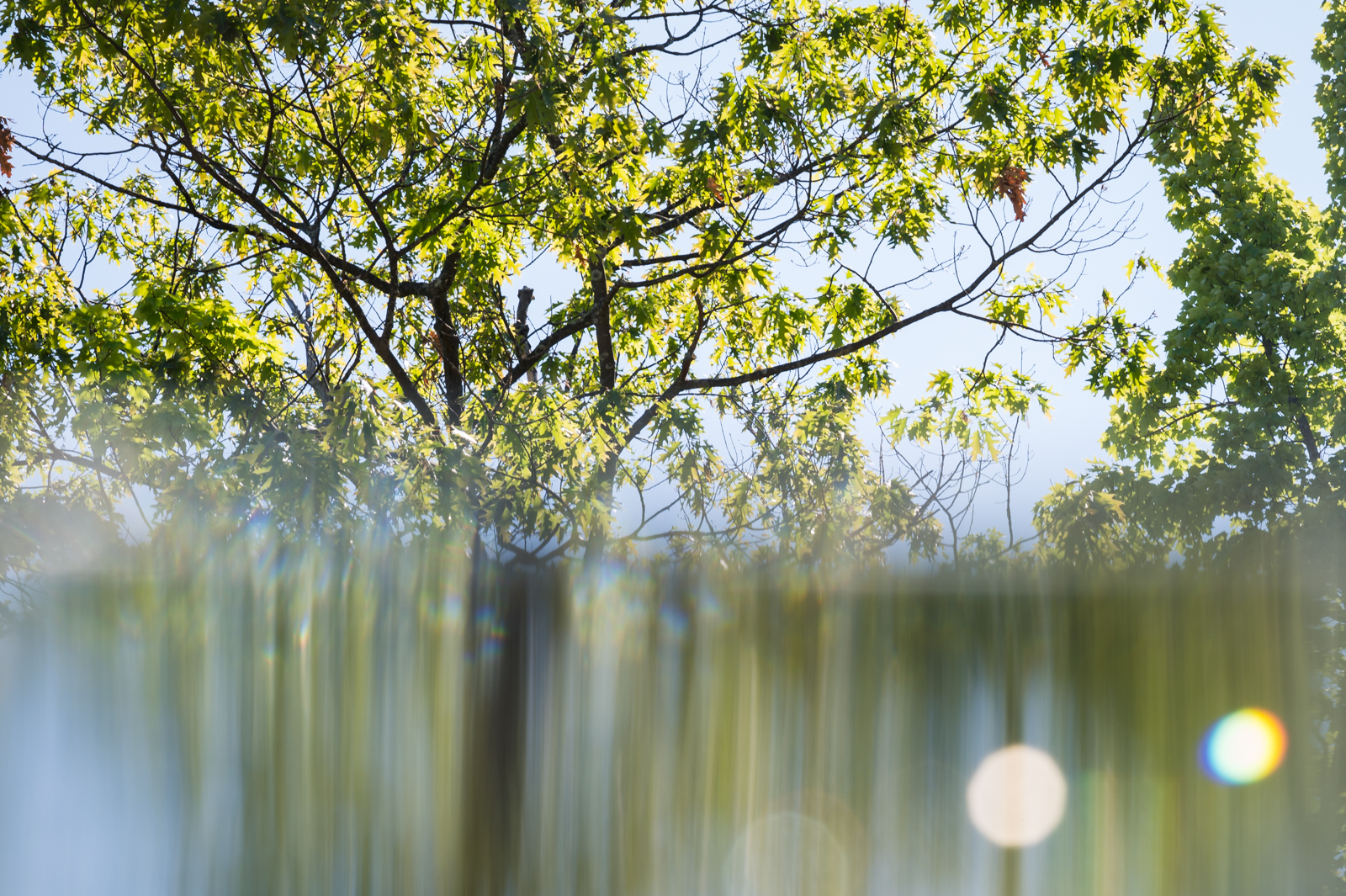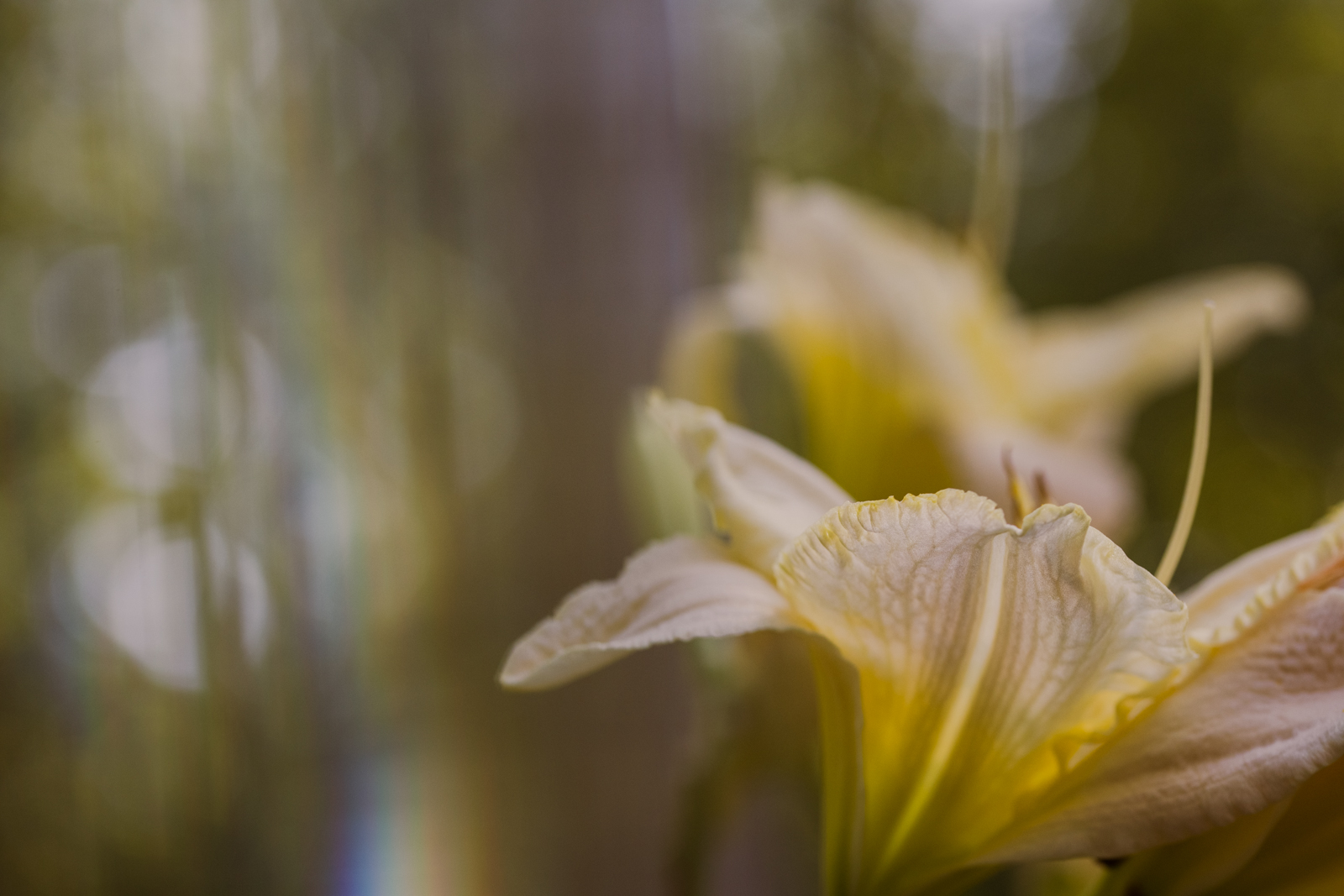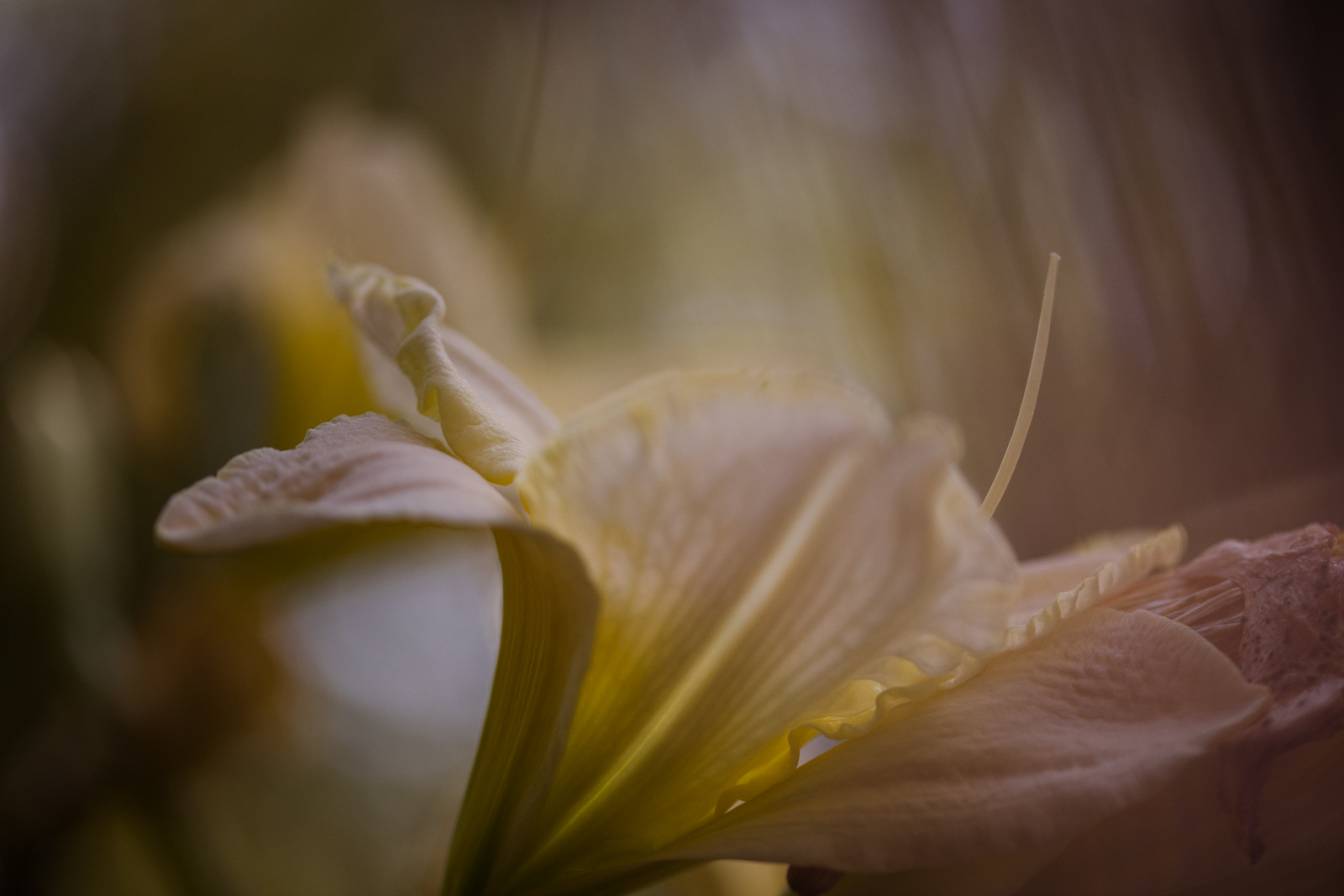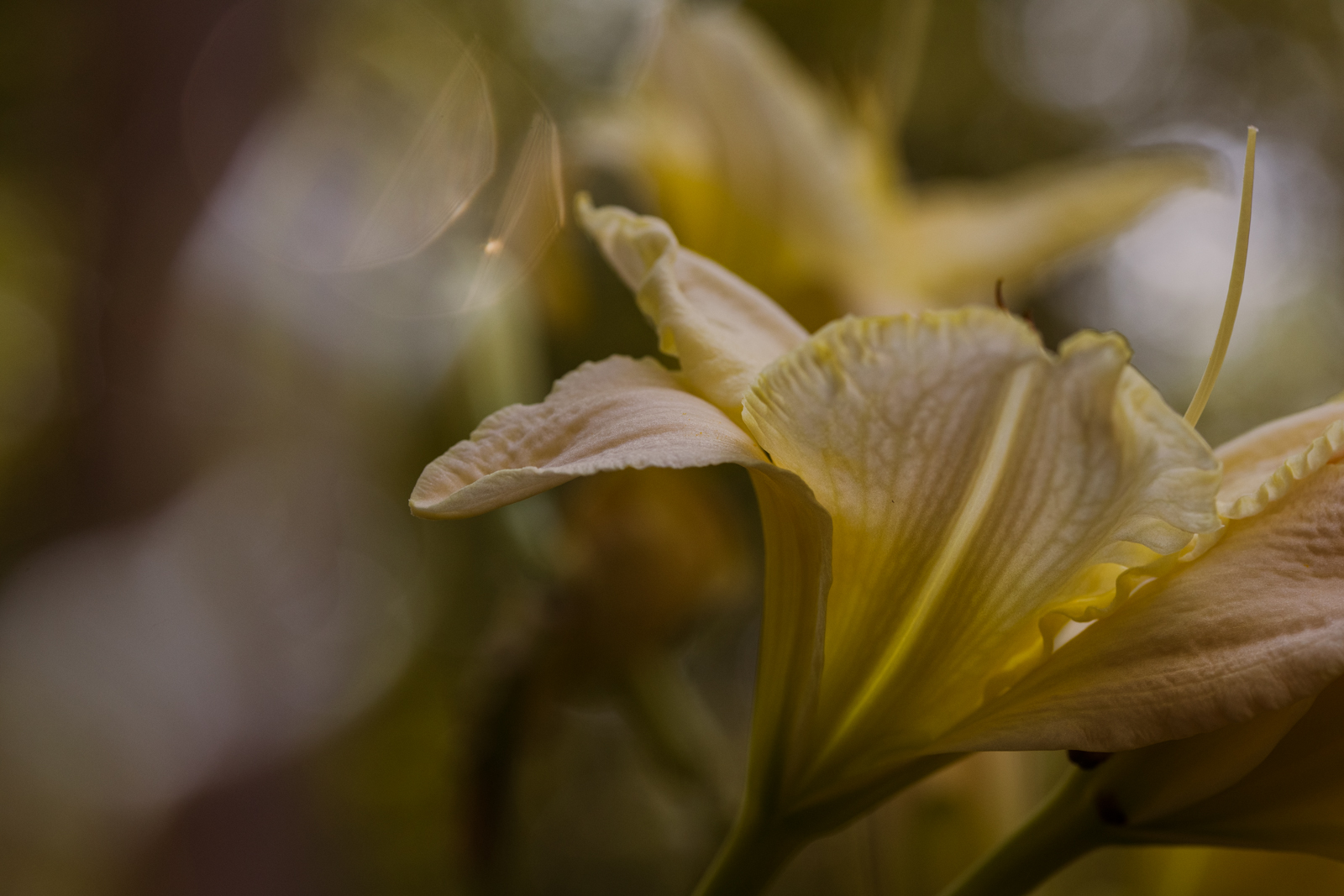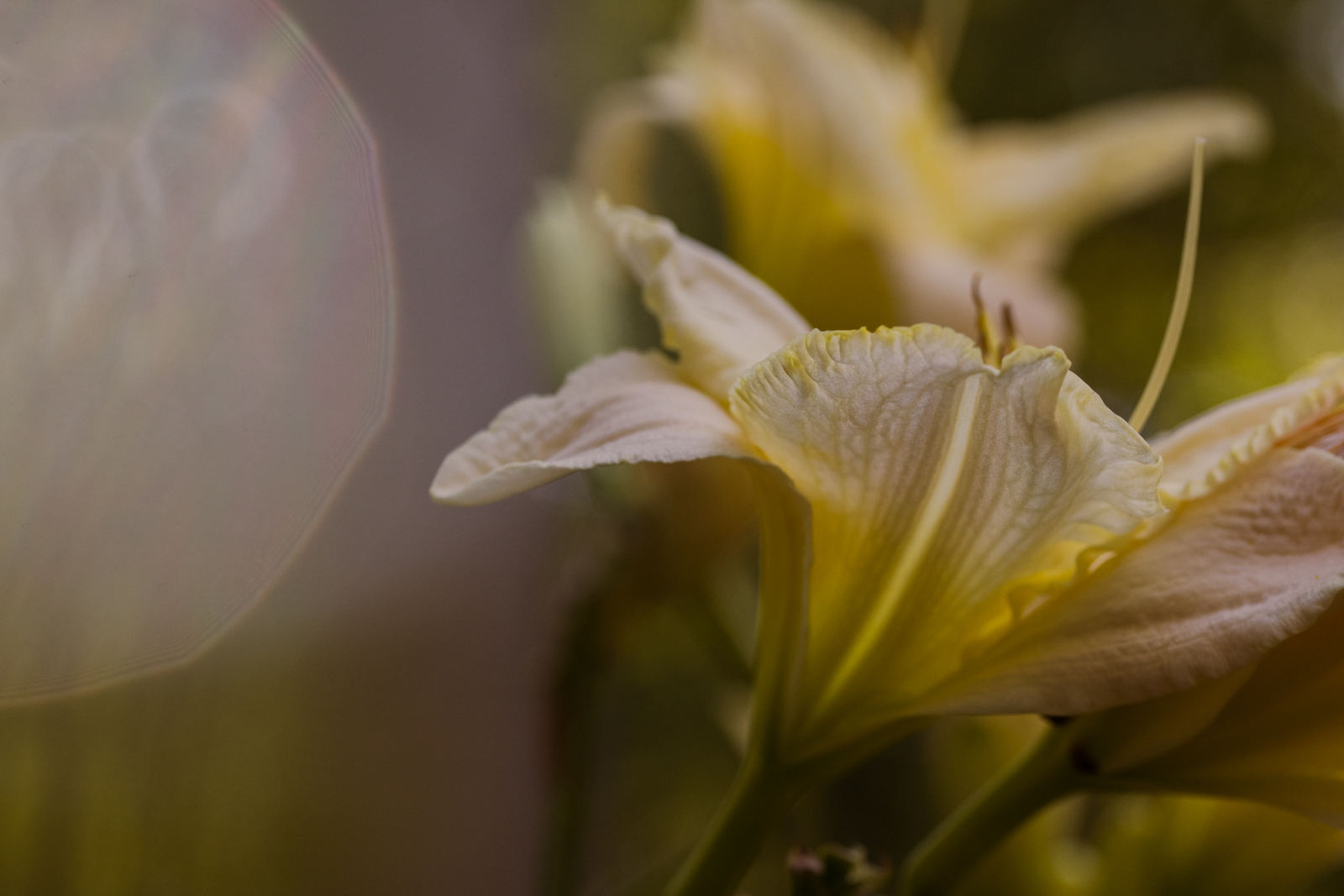Photographers have held everything from prisms to twinkle lights to smartphone screens in front of their lenses to create compelling in-camera effects, stashing all manner of shiny objects their camera bags like a crow hides trinkets in a nest. The effort results in neat reflections, rainbow patterns, dreamy bokeh, and lots of lens flare. It’s also a rather awkward technique, and when you finally get the exact result you’re looking for, it’s almost impossible to duplicate.
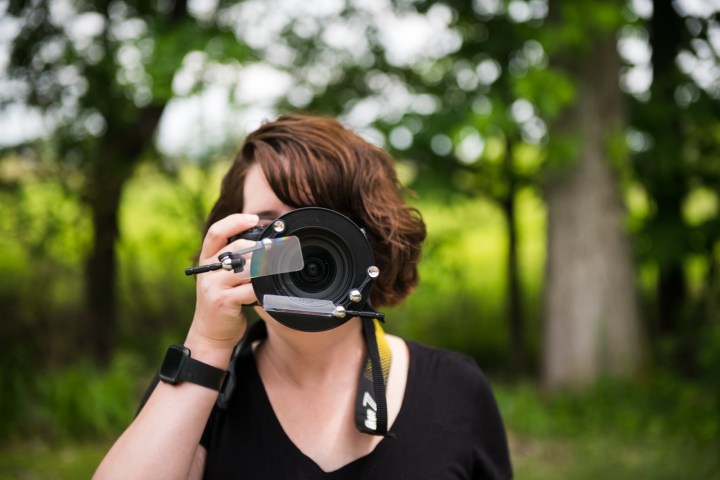
Wielding a variety of different prisms and effects wands, the Lensbaby Omni Creative Filter System uses magnetic arms that attach to a filter ring, letting you position the effect wherever you want it while keeping your hands free while you shoot. The Omni is an interesting looking piece of hardware that will raise some eyebrows, but aims to both simplify and expand on creative lens effects.
It may just be my favorite oddball creative accessory yet.
This is the first filter system from Lensbaby, and the first of its kind, period. Known for manual focus, creative effect lenses that go against the grain of most modern lens design, the Omni is a product only Lensbaby would build. It is also the first accessory from the company that’s designed to fit on any lens, not just Lensbaby’s own. Since the Omni’s original release, the company has continued evolving through expansion packs with additional effects wands to add to the system, the latest being the Flare Expansion Pack. I threaded the Omni onto the front of a lens to see how the system holds up — and it may just be my favorite oddball creative accessory yet.
Editor’s note: The Lensbaby Omni photographed is a pre-production model. Some minor changes — including a matte black finish on some pieces — were made before final production.
Gizmos and doohickeys
The Omni base is a wide metal ring that circles the outside of the lens. It screws into the front of the lens like any screw-in filter, with 58mm and 77mm sizes available natively. The Omni can be adapted to different size lenses using stepping rings, allowing it to fit on filter sizes as small as 49mm and as large as 82mm.
Sitting on the ring, two magnetic arm systems attach different effect wands. Each arm has two different attachment points, on the base of the Omni holster itself or on an extended flexible arm, allowing the wands to be held in different positions. The arms use strong magnets that didn’t fall off when bumped or tucked into a camera bag, but those arms are also easy to reposition by sliding them around the base.
With two arms that each have two different attachment points, you could potentially use four wands at once — though using one or two is more likely and more practical. While the arms are easy to reposition, the Omni feels well-designed and we had no issues with the wands staying in place. Along with keeping your left hand free, the arms help place the wands in the exact position that you need, giving you repeatable results.
Protecting oddly shaped pieces of glass could be an issue — but, thankfully, Lensbaby includes a soft case with the kit and expansion packs. The case is relatively nice considering many free cases are garbage, though I wish there was an attachment point at the back for latching onto a backpack or gear belt, and the case doesn’t always have enough slots. The Flare expansion pack, for example, has three slots with the fourth wand just wrapped in bubble wrap.
An experimental experience

Like many of Lensbaby’s lenses, the Omni is best for creative experimenting. The effect of the different wands varies based on its position and rotation, so without swapping wands, the effect can be altered just by repositioning the wand on the base. For example, the Crystal Seahorse wand creates reflections and light streaks when placed parallel to the lens. Place the same wand with the edge toward the lens and you get a bunch of blur circles — or bokeh balls, if you will — instead.
The Omni works better with wide aperture lenses. Leave too much of the image sharp, and you’ll be able to see the wand too clearly.
The effect of the prism also varies based on the available light in the scene. The wands typically work best when shooting toward a light source. The more light in the scene, the greater the effect — which means you’ll get bolder effects on a sunny day and more muted results on a cloudy day.
The magnetic design and two different placement options — on the arm or the base — makes the Omni system simple to use. I spent some time fidgeting with the prisms to get them in just the right position, but once placed, I could shoot hands-free without worrying about the wands shifting.
While easy to use, the system wasn’t quite perfect. Working with the Omni on an 82mm adapter, the wands weren’t long enough to bisect the entire image when using wide to mid-range lenses. With some of the wands, for example, I wanted to create a reflection that crossed the entire bottom half of the photo, but this wasn’t possible in-camera — I had to crop the image in post. The size of the wands was a non-issue when working with a 105mm, but the wands could be more versatile for use with wide-angle lenses if the wand was simply a bit longer.
Wide-angle lenses less than 50mm, Lensbaby says, may also show some vignetting when using step-up rings. The company suggests avoiding lenses that are wider than 35mm (on full-frame cameras).
Because of the principals of depth of field, the Omni also works better with wide aperture lenses. Leave too much of the image sharp, and you’ll be able to see the wand too clearly. The wider the lens, the wider the aperture will need to be to ensure that the wand is sufficiently out of focus. We successfully used apertures up to f/10 when working at 70mm, but typically got better results with wider apertures.
A collection of effects
The original Omni includes three different effect wands. The base kit includes two different prisms (Stretch Glass and Crystal Seahorse) and Rainbow Film, while the Crystal expansion pack includes three additional prisms with different shapes for different creative effects. The new Flare expansion pack includes four wands designed to add different types of flare and in some cases, points of light. Lensbaby also offers a Color expansion pack that we have not tested.
Tucked into the included pouch, each wand looks the same with just its black handle sticking out. Color coding or labeling the ends of the handles would have been a simple change to help easily access the desired wand. You may want to find a way to label them yourself as a result.
The Stretch Glass prism is a flat prism on one side with a slight curve to the surface on the opposite side that stretches incoming light. Switching between the flat and curved sides adjusts the different reflections and light streaks possible from a single wand. We found it to be the best option for creating reflections. The Crystal Seahorse wand is a flat piece of crystal that curves into an imperfect “r” shape, but with scallops and dips in the edges that can catch light and produce bokeh circles in the photograph.
The Rainbow Film is the only wand in the main set that’s not a prism or crystal. As its name suggests, it creates rainbows in the image. The flat side tends to produce larger rainbow spots, while turning the film on its edge creates a thin, multi-colored flare.
Available in the expansion pack, the Crystal Sphere is a prism with a more complex cut for creating flare and highlights, meant to create kaleidoscopic effects. A standard triangular prism is also included, good for creating reflections as well as flares. The Scalloped Window also uses a triangular shape, but with scalloped edges that create circular bokeh, kind of like the Crystal Seahorse. The difference is the clear center, which means you can frame smaller subjects in between two lines of bokeh.
Inside the Flare expansion pack, the Anamorphic Raindrop is a prism with a glass ball at the end. IT adds a large bokeh ball to the image, or can be used towards the edge of the image to create circular flare, while the base will also add linear flare effects. Similarly, the Prism Flare is a triangular piece of glass that can also add linear flare as well as a colored flare. The Zig-Zag was a personal favorite, a prism with two curves in it that can introduce two parallel flares or bokeh points into the image. The Saber is a long, skinny prism that introduces beautiful, subtle streaky flare or streaks of light in direct sun.
It’s weird, but you’ll want it in your bag
Photography filters haven’t seen anything innovative in years, but the Omni filter system creates unique effects unlike any other accessory on the market. The prisms and rainbow film create the kind of colorful patterns that will have viewers wondering how, exactly, you managed to capture that shot.
Using prisms for different effects isn’t anything new, but the Omni system makes achieving those effects easier, both from the variety of different effect wands available, keeping the wands in place, and freeing up a hand. That makes the Omni ideal for photographers ready to experiment with different creative effects from reflection and flare to bokeh easily added to any image.
The variety of different creative effects earns the Omni a designation as my favorite weird camera accessory. However, I wouldn’t recommend the system for photographers favoring wide-angle lenses because of the small size of the wands and the difficulty in getting a shallow enough depth of field to fully blur the shape of the want.
While photographers have been using prisms for years, there’s not much like the Omni on the market. The Prism Lens FX filters come the closest, but are designed like a traditional filter over the lens which likely leads to less flexibility — and they cost $75 for each effect.
The Lensbaby Omni Creative Filter System is available for about $100 with three wands and the mount included. The expansion system with three additional wands (no mount) is available for $50.
